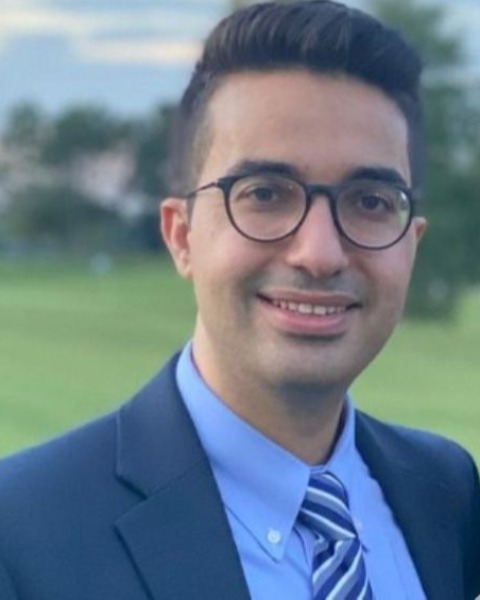Education/Quality Improvement
Abstract E-Poster Presentation
A Survey of Endocrinology Fellows-In-Training Engagement in Professional Medical Societies

Saif M. Borgan, MD
PGY5 Endocrinology Fellow
Cleveland Clinic Foundation
Cleveland, Ohio, United States
Poster Presenter(s)
Early career engagement has been a focus of various medical societies. [1-3] However, there remains a paucity of information on Fellows-In-Training (FIT) and their level of engagement and attitudes towards professional medical societies. The objective of this study was to survey FIT engagement and their attitudes towards professional medical societies.
Methods:
Invitations containing an electronic survey (using redcap platform) were emailed to all endocrinology fellowship program directors (PD) (N=155) listed on the American Medical Association’s website. We requested that they distribute the invitations to their FIT (estimated N= 650) and confirm this action. Email invitations were confirmed accepted by 35 PD and distributed to 292 FIT. Descriptive data were measured and summarized using the redcap statistical software.
Results:
Seventy-one program directors forwarded invitations to 355 FIT, with a total of 79 completed surveys (response rate 22.3%) across all training years; 40 1st year (50.6 %), 36 2nd year (45.6%), and 3 3rd year FIT (3.8 %). Mean age was 32.3 (SD 2.7), females constituted 67.1% (N= 53) and the most prevalent race was White/Caucasian (N=49, 62.0%). The 3 most common memberships were Endocrine society (N=70, 89.7%), American Association of Clinical Endocrinology (N=61, 78.2 %), and the American College of physicians (N=27, 34.6%). The majority (N=70, 90.9%) initially became society members to join an educational event, and some respondents also joined to be part of a community or for professional networking purposes (26.0% and 20.8%, respectively). While 65 (82.3%) respondents reported being encouraged to join a society by a supervising fellowship faculty member, only 54 (68.4 %) of respondents reported receiving reimbursement for society membership fees by their programs. The majority of respondents rated the importance of joining a medical society during fellowship as either “somewhat important” (N=35, 44.3%) or “very important” (N=39, 49.4%) and the majority reported they will maintain their membership upon fellowship completion (N=78, 96.2%). Respondents selected more educational resources (N=41, 52.6 %), and more professional networking and job opportunities (N=24, 30.8%), as the most helpful future initiatives societies could offer.
Discussion/Conclusion:
A clear majority of endocrinology FIT value professional medical societies and will maintain their membership upon completing training. FIT respondents are primarily interested in more society led educational development resources as well as professional networking opportunities; both of which may be used to attract future endocrinology FIT into their membership base.
